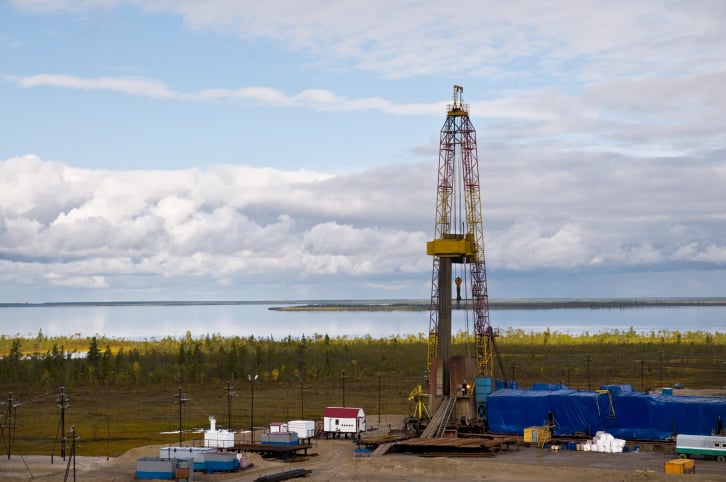By Daniel J. Graeber, oilprice.com | Mon, 29 April 2013  Source: Thinkstock
Source: Thinkstock
A U.S. circuit court of appeals last week told the oil industry it couldn’t pursue a case on disclosure rules at the appellate level. President Barack Obama’s government has supported provisions under the 2010 Dodd-Frank financial reform measure that require oil companies to divulge what they pay to foreign governments. Last week, the House of Representatives pushed legislation that would exempt oil companies from the provision while working along the U.S.-Mexico maritime border. The Senate countered with its own measure that doesn’t include the protection, however. This week, Obama heads to Mexico City to meet Mexican President Enrique Pena Nieto. With a series of legislative obstacles, it may require quite an effort to carry the energy independence load across the Rio Grande.
Advocacy groups have challenged the American Petroleum Institute as it tackles disclosure requirements outlined in the Dodd-Frank Act of 2010. The so-called Cardin-Lugar provision aims to combat the “resource curse,” whereby government mismanagement or corruption may be part of the reason for slow economic growth in countries rich in natural resources. A little less than half of the population, or around 680 million people, earn less than $2 per day in resource-rich countries. The Cardin-Lugar provision would require oil and natural gas companies to disclose payments made to foreign governments controlling natural resource wealth to combat some of that discrepancy.
Related article: Time for Investors to Turn their Attention to the Gulf of Mexico
In early April, the European government agreed to embrace a “new era of transparency” for the extractive industries by mirroring Dodd-Frank with its own legislation. The deal was backed despite efforts by so-called Big Oil to dampen the measure.
“Local communities in resource-rich countries will finally be better informed about what their governments are being paid by multinationals for exploiting oil and gas fields, mineral deposits and forests,” EU internal market commissioner Michel Barnier said.
The American Petroleum Institute said the disclosure provisions are prohibitive. When the EU moved forward with its own disclosure policies, The Brookings Institution said the era of big secrecy for big oil was over. In the United States, the ruling by the appeals court kicks the case over to the district level. Last week, however, the House of Representatives tried to muscle legislation through that would open the U.S.-Mexico maritime boundary to energy explorers. The Senate followed through with its own version, which didn’t contain the limited exemptions for disclosures like the House bill did.
Related article: Gulf of Mexico is Back, and Subsalt is all the Rage
Oil is central to the economy of Mexico. Oil production there peaked nearly a decade ago, however, and the government is still searching for a foothold following a major recession in the 1990s. When Pena Nieto took office in December, he pledged to try to get the oil sector on the right track through more private investments. Some of that, however, would require constitutional maneuvering on Mexico’s part. In the United States, lawmakers are trying to capitalize on the oil sector’s boom by opening even more acreage to energy explorers. The U.S. government estimates the maritime border region may hold as much as 172 million barrels of oil and 304 billion cubic feet of natural gas. House leaders backing the transboundary measure said it would lead to energy independence and greater cooperation with Pena Nieto’s government. API, meanwhile, says that can’t happen effectively with Dodd-Frank in the way. With legislative hurdles on both sides, Obama may be pulling quite a load across the border in terms of North American energy.
Take This Retirement Quiz To Get Matched With An Advisor Now (Sponsored)
Are you ready for retirement? Planning for retirement can be overwhelming, that’s why it could be a good idea to speak to a fiduciary financial advisor about your goals today.
Start by taking this retirement quiz right here from SmartAsset that will match you with up to 3 financial advisors that serve your area and beyond in 5 minutes. Smart Asset is now matching over 50,000 people a month.
Click here now to get started.
Thank you for reading! Have some feedback for us?
Contact the 24/7 Wall St. editorial team.


